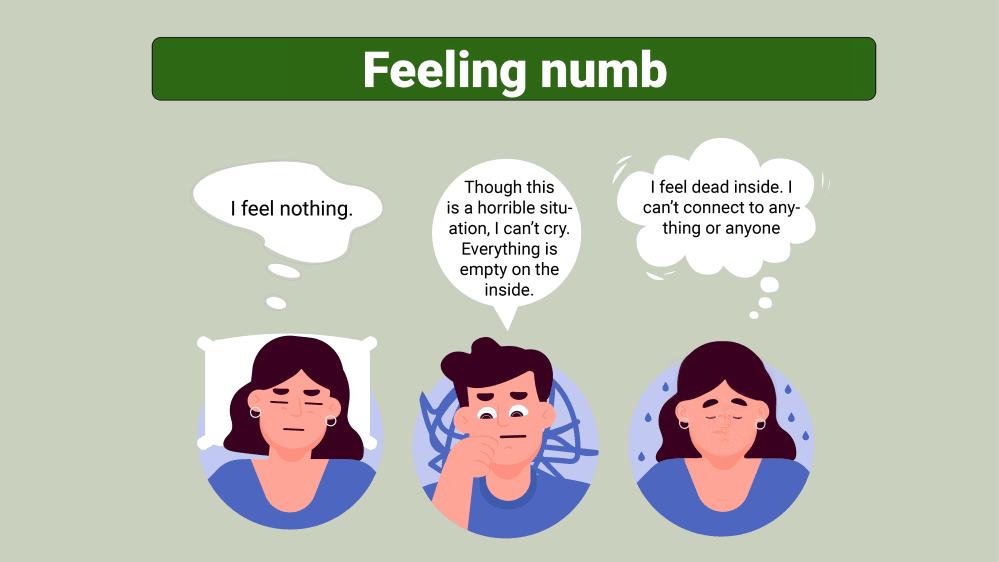
“
Work-related stress can sometimes escalate into something more serious, known as burnout. Recognizing the signs and symptoms of workplace burnout early is crucial for maintaining mental, emotional, and physical health. This condition can diminish job performance, lower motivation, and severely impact overall well-being. By understanding the common signs and symptoms of workplace burnout, employees and employers alike can take proactive steps to foster a healthier, more sustainable work environment.1
1
”
Feeling constant exhaustion even after getting enough rest is a major sign of burnout, where physical and emotional energy drains faster than it can be replenished by sleep or weekends. 1
Persistent cynicism or negative attitudes towards work duties and colleagues often signal burnout, causing a shift from initial enthusiasm to detachment, disinterest, and a cold, critical outlook. 2
A noticeable decline in work performance, despite trying hard, usually hints at burnout, as chronic stress affects memory, concentration, creativity, and the ability to solve complex workplace problems effectively. 3

Frequent headaches, muscle tension, and stomach issues without an underlying medical cause are common physical symptoms of burnout, showing how psychological strain can manifest physically in daily life.
Feeling emotionally detached from projects or clients is a classic burnout symptom, where individuals stop feeling invested, leading to disconnection from once-meaningful work and strained professional relationships. 4
Experiencing severe irritability and frustration over minor inconveniences at work is a strong warning sign of burnout, indicating that emotional resilience and patience are significantly eroding over time. 5
Difficulty sleeping, especially insomnia caused by racing work-related thoughts, often accompanies burnout, preventing true rest and creating a vicious cycle of exhaustion and reduced daytime functioning. 6

Increased absenteeism, where employees frequently call in sick or arrive late, can be a coping mechanism during burnout, as facing work becomes mentally and physically unbearable.
Feeling unappreciated or undervalued at work often deepens burnout, creating a toxic sense of futility where personal contributions seem invisible, meaningless, or constantly overshadowed by criticism. 7
Loss of personal identity outside the workplace, where career defines self-worth entirely, can happen during burnout, leaving individuals feeling empty, confused, and disconnected from personal passions or hobbies. 8
Social withdrawal, both at work and outside, signals burnout as individuals lack the emotional energy to maintain relationships, avoiding colleagues, friends, or family in favor of isolation and solitude. 9
An increase in unhealthy coping habits, such as overeating, smoking, drinking alcohol, or excessive screen time, can indicate burnout as individuals seek temporary relief from chronic stress and exhaustion. 10

Feeling emotionally numb, where neither praise nor criticism impacts emotions, can emerge during burnout, resulting in a disturbing emotional flatness that affects both professional and personal life.
Heightened sensitivity to feedback, where even mild criticism feels overwhelmingly harsh, is common during burnout, as depleted emotional reserves lower tolerance for any form of perceived judgment. 11
Physical signs like frequent colds or infections often accompany burnout because chronic stress suppresses the immune system, making individuals more vulnerable to everyday illnesses and longer recovery periods. 12
Loss of satisfaction or pride in achievements, even when reaching major milestones, is a hallmark of burnout, where nothing feels genuinely rewarding or worth celebrating anymore. 13

Emotional outbursts, like sudden crying or anger, triggered by relatively minor events, often indicate burnout, reflecting how severely emotional stability has been undermined by prolonged and unaddressed work stress.
Neglecting personal self-care routines, such as exercising, eating balanced meals, or attending medical appointments, often points to burnout, where work stress consumes all available energy and focus. 14
Feeling like every task is overwhelming, regardless of its size or complexity, suggests burnout has affected resilience, making even small assignments feel like insurmountable burdens. 15
A significant decrease in overall enthusiasm for life beyond work, including disinterest in hobbies, social activities, or personal goals, shows that burnout's emotional toll extends far beyond the office walls. 16


